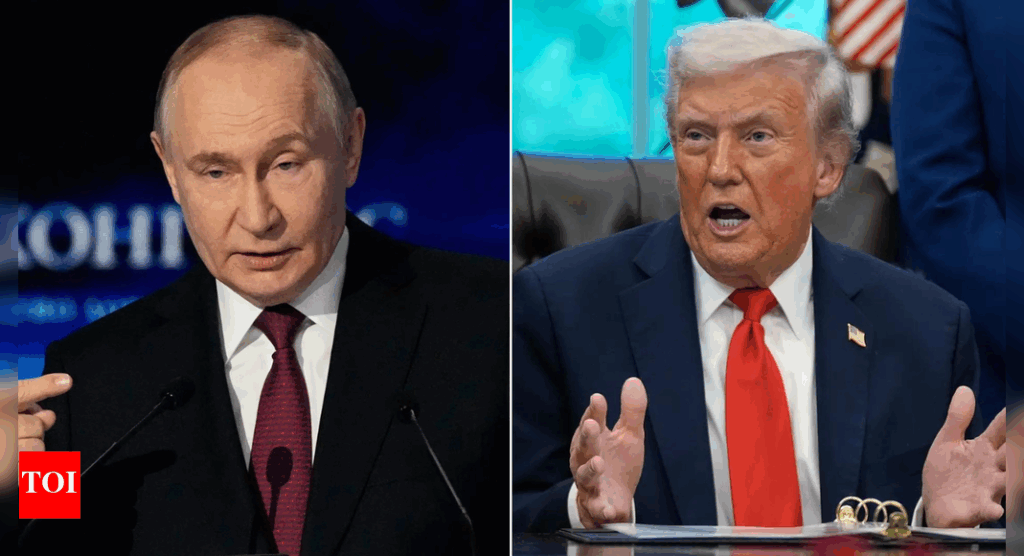
The United States has announced sweeping sanctions on Russia’s two largest oil companies, aiming to pressure Moscow into agreeing to an immediate ceasefire in Ukraine. The move comes as President Donald Trump expressed frustration over stalled negotiations with Russian President Vladimir Putin regarding the ongoing conflict.
On Wednesday, Treasury Secretary Scott Bessent revealed the sanctions, emphasizing their intent to cripple the Kremlin’s financial support for the war effort. “Now is the time to stop the killing and for an immediate ceasefire,” Bessent stated in a post on X. He further warned that the Treasury is prepared to take additional measures if necessary, urging allies to join the United States in enforcing these sanctions.
The Impact of Sanctions on Russia’s Oil Industry
The sanctions target Russia’s energy sector, a critical component of its economy and a significant source of revenue for its military operations. By restricting these financial flows, the United States aims to weaken Russia’s ability to sustain its military activities in Ukraine.
President Trump, speaking to reporters, expressed hope that the sanctions would be temporary.
“These are tremendous sanctions… And we hope that they won’t be on for long. We hope that the war will be settled,”
Trump remarked. Despite his efforts, Trump noted the difficulty of negotiations with Putin, stating,
“Every time I speak with Vladimir, I have good conversations, and then they don’t go anywhere.”
Historical Context and Expert Opinions
This move by the United States is reminiscent of past sanctions imposed during the Cold War era, where economic pressure was used as a tool to influence geopolitical outcomes. Experts suggest that while sanctions can be effective, their success largely depends on international cooperation and the targeted country’s economic resilience.
Dr. Emily Carter, a political analyst specializing in Eastern European affairs, commented on the potential impact of these sanctions. “Sanctions can disrupt the economy and create internal pressure on the government, but they must be part of a broader strategy,” she explained. “Russia has historically shown an ability to adapt to economic challenges, so the effectiveness of these sanctions will depend on their scope and the global response.”
Global Reactions and Future Implications
The announcement has prompted mixed reactions from the international community. Some allies have expressed support, while others remain cautious about the potential economic fallout. The European Union, heavily reliant on Russian energy, faces a delicate balancing act between supporting US measures and safeguarding its own energy security.
Meanwhile, the sanctions represent a significant escalation in the US’s approach to the Ukraine conflict. By targeting Russia’s economic lifeline, the United States seeks to force a diplomatic resolution. However, the risk of further economic destabilization in the region looms large.
Looking ahead, the effectiveness of these sanctions will hinge on Russia’s willingness to engage in meaningful negotiations. As the situation unfolds, the international community will be watching closely, hoping for a peaceful resolution to a conflict that has already claimed numerous lives and displaced thousands.
The United States remains committed to advocating for peace, with the Treasury Department affirming,
“A permanent peace depends entirely on Russia’s willingness to negotiate in good faith.”
The world awaits the next steps in this high-stakes geopolitical chess game, with the hope that diplomacy will ultimately prevail.





